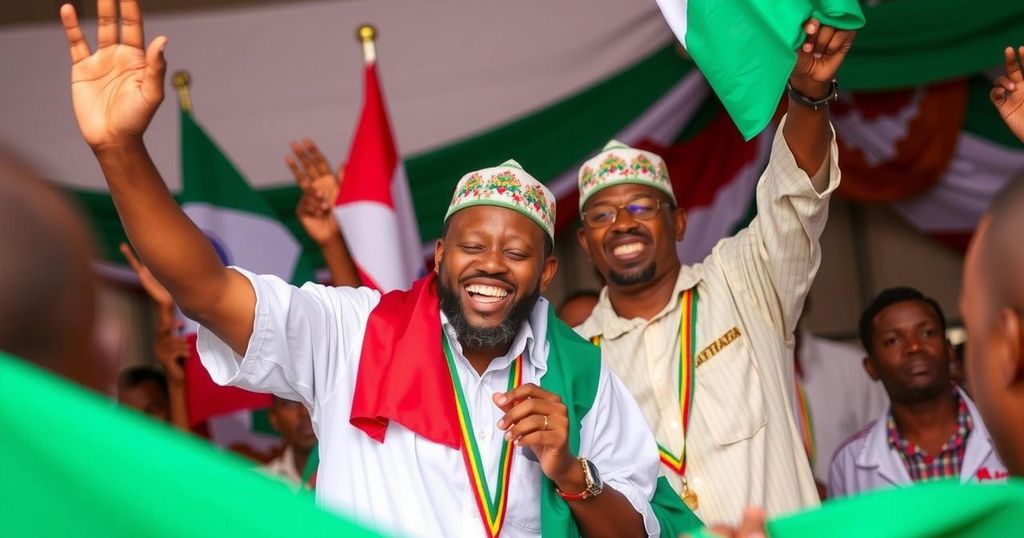World news
2024 ELECTIONS, AFRICA, AHMED BARTCHIRET, BOKO HARAM, CHAD, CONSTITUTIONAL REFORMS, DEBY, ELECTIONS, ELECTORAL COMMISSION, ELECTORAL PROCESS, EUROPE, FRANCE, GOVERNANCE, GOVERNMENT, LAKE CHAD, MAHA, MAHAMAT IDRISS DEBY, PATRIOTIC SALVATION MOVEMENT, SUCCES MASRA, TRANSFORMERS PARTY
Lena Nguyen
0 Comments
Chad’s Ruling Party Secures Majority in Parliamentary Elections
Chad’s ruling Patriotic Salvation Movement party has won the majority in recent parliamentary elections, securing 124 out of 188 seats amid a boycott by major opposition parties. This first parliamentary election in over a decade is seen as a concluding phase of the nation’s transition to democracy initiated after Mahamat Idriss Deby took military control in 2021. Voter turnout was recorded at 51.5%.
The recent parliamentary elections in Chad have witnessed a decisive victory for the ruling party, the Patriotic Salvation Movement, which secured 124 out of 188 seats. This election, the first of its kind in over a decade, was held amidst a backdrop of significant political transition following the ascent of Mahamat Idriss Deby to military leadership in 2021, following the death of his father, long-time President Idriss Deby Itno. Notably, voter turnout was reported at 51.5%, despite a boycott from more than ten opposition parties, including the prominent Transformers party. Political analysts regard this election as a critical juncture in Chad’s efforts toward establishing a democratic governance structure, a process that Deby has emphasized as essential for achieving decentralized power within various levels of the state.
The electoral process, which also encompassed regional and municipal elections, was touted by President Deby as a significant step towards decentralization, reflecting the aspirations of the Chadian populace. However, the absence of participation from substantial opposition forces casts a shadow over the legitimacy of the electoral outcome. The main opposition’s silence following the results raises questions about their stance on these elections and the political landscape moving forward. This pivotal election occurs as Chad grapples with pressing security challenges, including threats from Boko Haram and shifting relations with France, a former colonial entity.
Chad has been undergoing a transition to democracy since Mahamat Idriss Deby’s military-led takeover in 2021 after the death of his father, Idriss Deby Itno, who had ruled the country for thirty years. The parliamentary elections held recently mark a significant benchmark in this transition, representing the first parliamentary contest in over a decade. The ruling Patriotic Salvation Movement party’s victory amidst a boycott by key opposition parties highlights the challenges the nation faces in establishing a robust democratic framework. Furthermore, Deby’s emphasis on decentralization reflects ongoing discussions about power distribution at the provincial and local levels, aiming to respond to the demands of the populace.
In summary, the parliamentary elections in Chad have predominantly favored the ruling Patriotic Salvation Movement, yet the absence of significant opposition participation warrants scrutiny. As Chad endeavors to consolidate its democratic institutions, the mixed results present an opportunity to reevaluate political engagement and the path towards decentralization, while addressing imminent security concerns. Moving forward, the dialogue between the ruling party and opposition factions will be crucial for fostering a resilient political environment conducive to sustained development and stability.
Original Source: www.trtworld.com




Post Comment